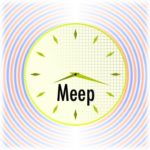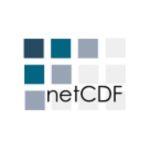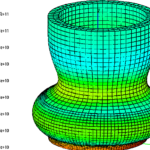In this RCE podcast, Brock Palen and Jeff Squyres discuss MEEP, a free finite-difference time-domain (FDTD) software for electromagnetic simulations. Their guests are Dr. Steven G. Johnson and Dr. Ardavan Oskooi. “Meep is a free and open-source software package for simulating electromagnetic systems via the finite-difference time-domain (FDTD) method. Meep is an acronym for MIT Electromagnetic Equation Propagation.”
RCE Podcast Looks at PMIx Process Management Interface for Exascale
In this RCE Podcast, Brock Palen and Jeff Squyres discuss PMIx with Ralph Castain from Intel. “The Process Management Interface (PMI) has been used for quite some time as a means of exchanging wireup information needed for interprocess communication. While PMI-2 demonstrates better scaling properties than its PMI-1 predecessor, attaining rapid launch and wireup of the roughly 1M processes executing across 100k nodes expected for exascale operations remains challenging.”
RCE-Podcast Looks at Project Jupyter for Interactive Data Science
In this RCE Podcast, Brock Palen and Jeff Squyres discuss Jupyter with Dr. Brian Granger from Cal Poly State University. “Jupyter is a non-profit, open-source project, born out of the IPython Project in 2014 as it evolved to support interactive data science and scientific computing across all programming languages.”
RCE Podcast Looks at PBS Professional Job Scheduler
“Now available as Open Source, PBS Pro software optimizes job scheduling and workload management in high-performance computing environments – clusters, clouds, and supercomputers – improving system efficiency and people’s productivity. Built by HPC people for HPC people, PBS Pro is fast, scalable, secure, and resilient, and supports all modern infrastructure, middleware, and applications.”
RCE Podcast Looks at NetCDF Network Common Data Format
In this RCE Podcast, Brock Palen and Jeff Squyres speak with the authors of NetCDF. NetCDF is a set of software libraries and self-describing, machine-independent data formats that support the creation, access, and sharing of array-oriented scientific data. “Unidata’s Network Common Data Form (netCDF) is a set of software libraries and machine-independent data formats that support the creation, access, and sharing of array-oriented scientific data. It is also a community standard for sharing scientific data.”
RCE Podcast Looks at Reproducibility of Scientific Results
“In recent years there has been increasing concern about the reproducibility of scientific results. Because scientific research represents a major public investment and is the basis for many decisions that we make in medicine and society, it is essential that we can trust the results. Our goal is to provide researchers with tools to do better science. Our starting point is in the field of neuroimaging, because that’s the domain where our expertise lies.”
RCE Podcast Looks at Deal.II Finite Element Library
“deal.II — a name that originally meant to indicate that it is the successor to the Differential Equations Analysis Library — is a C++ program library targeted at the computational solution of partial differential equations using adaptive finite elements. It uses state-of-the-art programming techniques to offer you a modern interface to the complex data structures and algorithms required.”
RCE Podcast Looks at SAGE2 Scalable Amplified Group Environment
In this RCE Podcast, Brock Palen and Jeff Squyres speak with the creators of SAGE2 Scalable Amplified Group Environment. SAGE2 is a browser tool to enhance data-intensive, co-located, and remote collaboration. “The original SAGE software, developed in 2004 and adopted at over one hundred international sites, was designed to enable groups to work in front of large shared displays in order to solve problems that required juxtaposing large volumes of information in ultra high-resolution. We have developed SAGE2, as a complete redesign and implementation of SAGE, using cloud-based and web-browser technologies in order to enhance data intensive co-located and remote collaboration.”
RCE Podcast Looks at iRODS Data Management Software
In this RCE Podcast, Brock Palen and Jeff Squyres speak with the creators of iRODS: Jason Coposky and Terrell Russell. Also known as the Integrated Rule-Oriented Data System, iRODS open source data management software is used by research organizations and government agencies worldwide. “iRODS virtualizes data storage resources, so users can take control of their data, regardless of where and on what device the data is stored. The development infrastructure supports exhaustive testing on supported platforms. The plugin architecture supports microservices, storage systems, authentication, networking, databases, rule engines, and an extensible API.”
RCE Podcast Looks at the Impala Project
In this RCE Podcast, Marcel Kornacker from Cloudera describes the Impala project. Impala brings scalable parallel database technology to Hadoop, enabling users to issue low-latency SQL queries to data stored in HDFS and Apache HBase without requiring data movement or transformation. Impala is integrated with Hadoop to use the same file and data formats, metadata, security and resource management frameworks used by MapReduce, Apache Hive, Apache Pig and other Hadoop software.













